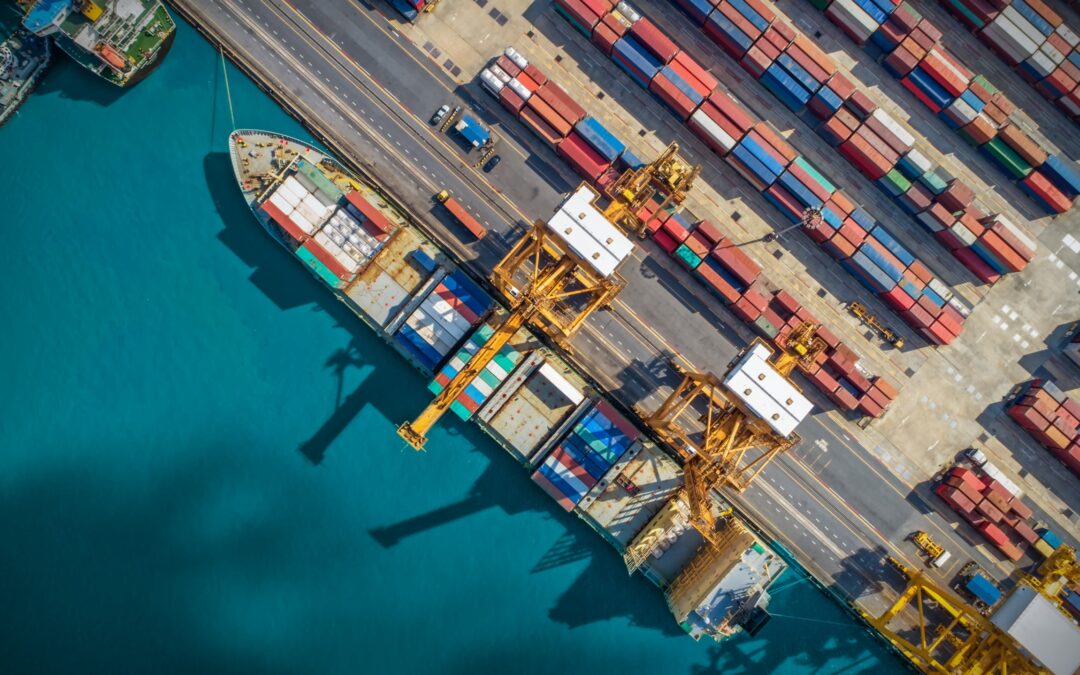International maritime shipments represent a key element in global supply chains. Although effective for transporting large quantities of goods at relatively low costs, this mode of transport can quickly become complex if poorly managed. Here are some strategies to optimize your maritime shipments and ensure the fluidity of your operations.
1. Choose your logistics provider wisely
One of the first elements to consider is the choice of your service provider. A good logistics partner should not only offer competitive prices, but also provide you with a reliable and transparent service. Make sure it has an extensive network of shipping partners and can handle all aspects of your shipments, from transportation to handling customs formalities.
Advices :
- Check reviews and recommendations from other customers.
- Compare services offered based on your specific needs, such as handling large shipments or specific destinations.
2. Plan and anticipate deadlines
Shipping delays can cause additional costs and disrupt your supply chain. It's essential to plan your shipments carefully, taking into account transit times, busy periods (like holidays or peak seasons), and possible unforeseen events like weather conditions.
Trick :
- Try to schedule your shipments outside of peak periods to avoid port congestion and transportation delays.
- Use real-time tracking tools to monitor the progress of your shipments and adjust your delivery forecasts.
3. Optimize container usage
Container selection and usage can significantly affect your costs and shipping efficiency. Using appropriately sized containers for your goods can not only maximize space, but also reduce transportation costs.
Practical advices :
- Use 20 or 40 foot containers depending on the size of your cargo.
- For small quantities, consider sharing a container (consolidation) with other shippers to reduce costs.
- Optimize container loading to use all available space and minimize internal movement that can damage goods.
4. Manage customs formalities efficiently
Customs formalities are often the cause of delays in maritime transport. Proactive management of necessary documents and knowledge of country-specific rules can save you valuable time. Make sure you have all the necessary documents, such as the bill of lading, commercial invoice, packing list, and any required certificates of origin or conformity.
To do :
- Work with an experienced customs agent to ensure your goods meet all regulatory requirements.
- Keep documentation complete and up to date to avoid delays or fines.
5. Insure your shipments
Cargo insurance is essential to protect against risks associated with shipping, such as damage, loss or theft of cargo. Depending on the value of your goods and their destination, it is recommended to take out appropriate insurance coverage to limit financial losses in the event of an incident.
Recommendation :
- Opt for “all risks” insurance covering both transport and temporary warehouse storage.
- Regularly assess the value of your goods and adjust your coverage accordingly.
6. Real-time tracking and communication
One of the biggest benefits of modern technology is the ability to track your shipments in real time. This not only allows you to know where your goods are, but also to plan their arrival more efficiently. Good follow-up is also essential to be able to meet the expectations of your customers.
To do :
- Choose a logistics provider that offers GPS tracking solutions and automatic notifications.
- Ensure smooth communication with your business partners to anticipate possible delays or changes.
7. Reduce environmental impact
In a context where sustainability is becoming a priority for many companies, it is possible to optimize your maritime shipments by reducing their carbon footprint. This can involve choices such as optimizing routes, using more energy-efficient ships, or even choosing logistics providers committed to sustainable practices.
To consider :
- Look for carriers that are investing in clean technology and alternative fuels.
- Plan routes that minimize distance traveled and unnecessary stopovers to reduce fuel consumption.
Conclusion
Optimizing your international maritime shipments requires rigorous management and close collaboration with reliable service providers. By following these tips, you will not only be able to reduce your costs and deadlines, but also improve your customer satisfaction. Omnifreight is here to support you every step of the way, with tailor-made solutions for your maritime logistics needs.

